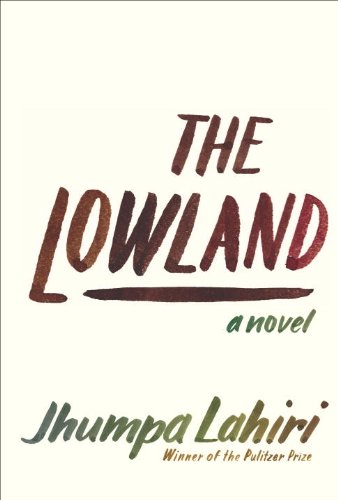
Fiction largely exists today in two forms: the novel and the short story. Each form has its own masters, and a few writers — like Salinger, Joyce and Tolstoy — have managed to master both. Jhumpa Lahiri’s first book and short story collection “Interpreter of Maladies” won great acclaim and the Pulitzer Prize for fiction in 2000. With her new book, “The Lowland,” she shoots for the great novelist title.
Lahiri’s short stories are small slices of immigrant life, but “The Lowland” is a big postcolonial story, trumpeted by the publisher’s marketing department as “a tale of two brothers bound by tragedy, a fiercely brilliant woman haunted by her past, a country torn by revolution, and a love that lasts long past death.” All of that is certainly true, but Lahiri’s stark prose is only partly on display here — much of the novel’s 300-plus pages are taken up by frustrating exposition that diminishes the novel’s otherwise epic scale.
The book starts with two brothers, Subhash and Udayan, in 1960s Calcutta. Both intelligent, they get out of their small village by getting into big-city universities but nonetheless have very different destinies. Udayan, the younger brother, gets involved in the Naxalite Maoist political movement while Subhash goes off to a university in Rhode Island to study oceanography in a doctorate program. The Naxalites back in India become increasingly violent and rebellious, leaving Udayan dead and his pregnant widow, Gauri, stranded. Subhash’s parents shun Gauri because of her low caste status so Subhash, out of decency, marries her and takes her back to Rhode Island with him. That’s just the first quarter of the book.
From that part of the story (The New Yorker published an abridged version in their summer fiction issue), the book slows down to a portrait of a loveless, struggling marriage and a half-functional family. When Gauri gives birth to her daughter, the book mostly settles into domesticity. A comment one of Gauri’s professors gave upon her daughter’s birth applies here: “With children the clock is reset. We forget what came before.”
Stories of the multi-decade, continent-spanning type normally comprise novels twice the size of “The Lowland,” but Lahiri’s efficient, suggestive prose keeps it down. She also makes sure no one in a large cast of characters is shortened into a cliché.
But Lahiri apparently doesn’t think a great short novel is enough. Every significant character decision is accompanied by exhaustive explanation, like she’s including marginal annotations of the story into the story itself. Little of the characters’ inner lives are left to the imagination. The reader doesn’t get to breathe within the pages and think about why this character has done that – all the thinking is already done for us. The relentless elucidation makes the novel feel stoic; it flattens and softens the story’s emotional twists and turns with obvious psychological insight. The story and characters don’t get the swiftness and independent lives they deserve. Somewhere in this very good 350-page novel there is a 200-page masterpiece.


